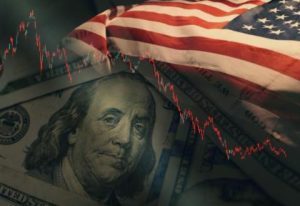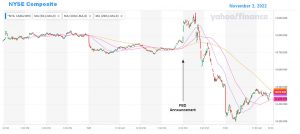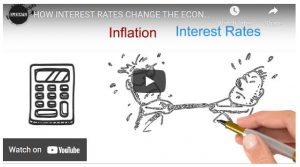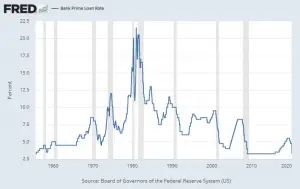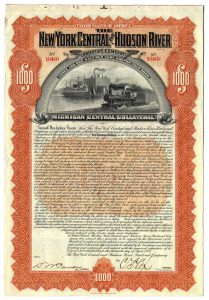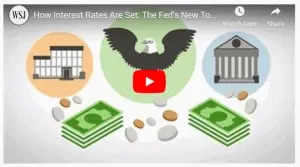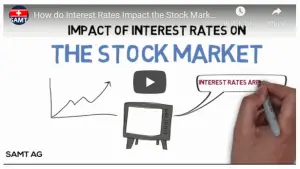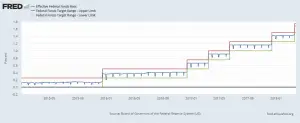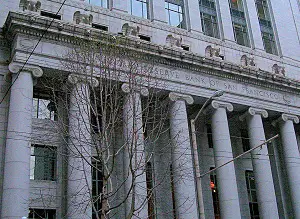People are often confused about the difference between DEFLATION and DISINFLATION. Deflation is when prices are actually falling compared to last year, i.e., you will actually pay less for enough items to reduce your cost of living. It doesn't necessarily mean that everything costs less but enough items cost less to make the inflation rate negative. Disinflation on the other hand, simply means that the rate of inflation is slowing. This could be for as little as one month, i.e., annual inflation was 4% in May 2023 and then it was 3% in June 2023. That is a big disinflation. But it was 3.2% in July 2023. So there was no monthly disinflation but there was still disinflation over two months … [Read more...]
November FED Announcement Rocks Stock Market
The FED Giveth and the FED Taketh Away On Wednesday, November 2nd, the FED held its "Federal Open Market Committee meeting" and made the announcement the market has been breathlessly awaiting. As expected, Chairman Jerome Powell announced a hike of 75 basis points in the fed funds rate. Along with the announcement, the market was hoping for some indication of a "pivot", i.e., that the FED would give some indication that it was going to be slackening off on its rapid rate increases. And in this respect, the November FED Announcement did throw the market a bone. It added the new phrase “Cumulative Tightening” to the standard announcement. So, going forward, the FED will take the fact … [Read more...]
The Relationship Between Inflation and Interest Rates: Explained
"Macroeconomics" deals with the "big picture" of how things fit together in the economy as a whole, while "microeconomics" deals more with how it affects the individual. Here at InflationData, we generally look at the macro side and leave the economics of the individual to our sister sites like Your Family Finances. Today we are going to look at the macroeconomic implications of the link between inflation and Interest rates. ~Tim McMahon, editor The Macroeconomic Link Between Inflation and Interest Rates By George J. Newton Price Inflation is the rate at which the price of goods and services rises in the economy over a period of time. Monetary inflation is the increase in the money … [Read more...]
How Can Inflation Affect Businesses?
Inflation can affect business in strange ways. It can be good for business in small doses, but it can also be disastrous if it devolves into hyperinflation. Hyperinflation is often described as massively increasing prices over a very short period of time, for example, in America during the Civil War. But even if inflation doesn't get that bad, the later stages of ordinary inflation such as we saw in the 1980s can still be devastating to businesses. Here are four ways that businesses are affected by inflation or hyperinflation, and what that might mean for their customers and other services they might invest in. #1 It Can Increase Sales In the short run, as the money supply increases, … [Read more...]
Inflation and Bonds
What are Bonds? Bonds are a type of "debt instrument" frequently issued by corporations and governments. Typically they have a "par value" of 100 (or 1000). Par value, aka. "nominal value" is the face value of a bond. However, bonds can trade at a premium or discount to face value but at the end of its term, the borrower (i.e. government or corporation) must pay the lender (i.e. investor, aka. creditors or debtholders) the face value. During the term of the loan, the borrower makes interest payments to the lender based on the face value and the listed interest rate (aka. coupon rate). Bonds can be issues for fairly long terms i.e. 20 or 30 years so interest rates can change drastically … [Read more...]
Does the FED Control Mortgage Rates?
For new home buyers, anything that increases the cost of the purchase (like rising mortgage interest rates) can negatively impact your ability to be able to afford your home. That is why everyone is concerned when the Federal Reserve (i.e. the FED) raises interest rates. The following chart shows how the Fed Funds Rate has performed from January 2015 through July 2019. The FED lowered the FED Funds rate to near zero in response to the market crash in 2008-2009. It kept it there until January 2016 when it began gradually raising rates. However, at their July end meeting, they decided to lower interest rates, reducing the federal funds rate target by 25 basis points, to a range of 2% to 2.25%. … [Read more...]
What Impact Does Interest Rates and Inflation Targets Have on Stocks?
Why is The FED's Targeted Inflation Rate Important in the US? Since 2012, the Fed has targeted an inflation rate of 2%. They have deemed this a healthy rate of inflation, necessary for economic growth. According to the Board of Governors of the Federal Reserve System, since 1977, the Federal Reserve has operated under a mandate from Congress to "promote effectively the goals of maximum employment, stable prices, and moderate long term interest rates" this is called a "dual mandate" in that it is supposed to balance a healthy economy with stable prices not just target low inflation. When the FOMC (Federal Open Market Committee) meets, their job is to fulfill this mandate. The Fed has … [Read more...]
Gold Price and Its Relationship with Inflation
Inflation is the increase in the price you pay for goods and services, which affects the purchasing power of your money. This is more accurately called "price inflation" as compared to "monetary inflation". As inflation increases, the value of your money decreases. There are many different causes of inflation, but the most important cause is an increase in a country’s money supply. When the government decides to print money or implement a quantitative easing program, the money supply is increased (i.e. monetary inflation), thus affecting the general level of prices. As we can see in the following chart, the Federal Reserve engaged in three phases of quantitative easing i.e. QE1, QE2, … [Read more...]
The Effects of Inflation and Interest Rates on Commodity Prices
In common usage, inflation refers to steadily rising prices of goods and services over time, while "deflation" relates to falling prices. Inflation is both a boon and a bane to the economy and the rate of inflation is affected by a variety of factors including FED monetary policy, interest rates, supply vs. demand, and the Velocity of money. However, strictly speaking, rising prices are "price inflation" which is generally caused by "monetary inflation" i.e. the expansion of the money supply, among other things. See What is Inflation? for more info. Many Keynesian Economists believe that Inflation is a prerequisite for economic growth and prosperity and Keynesians believe Monetary … [Read more...]
Is the Federal Reserve Right About Inflation?
The Federal Reserve The Federal Reserve serves as the Central Bank of the United States, and whether you realize it or not, it plays an active role in the lives of every American. It makes decisions about monetary policy and interest rates that have a direct impact on the market and an indirect impact on everyone. The FED uses inflation targets to determine how much they can devalue (inflate) the currency. Many people believe that they created a massive money printing scheme cryptically called "Quantitative Easing"since QE1 converted almost worthless mortgage backed securities into currency. The Fed regularly issues statements about how inflation isn't really as bad as everyone says it … [Read more...]

